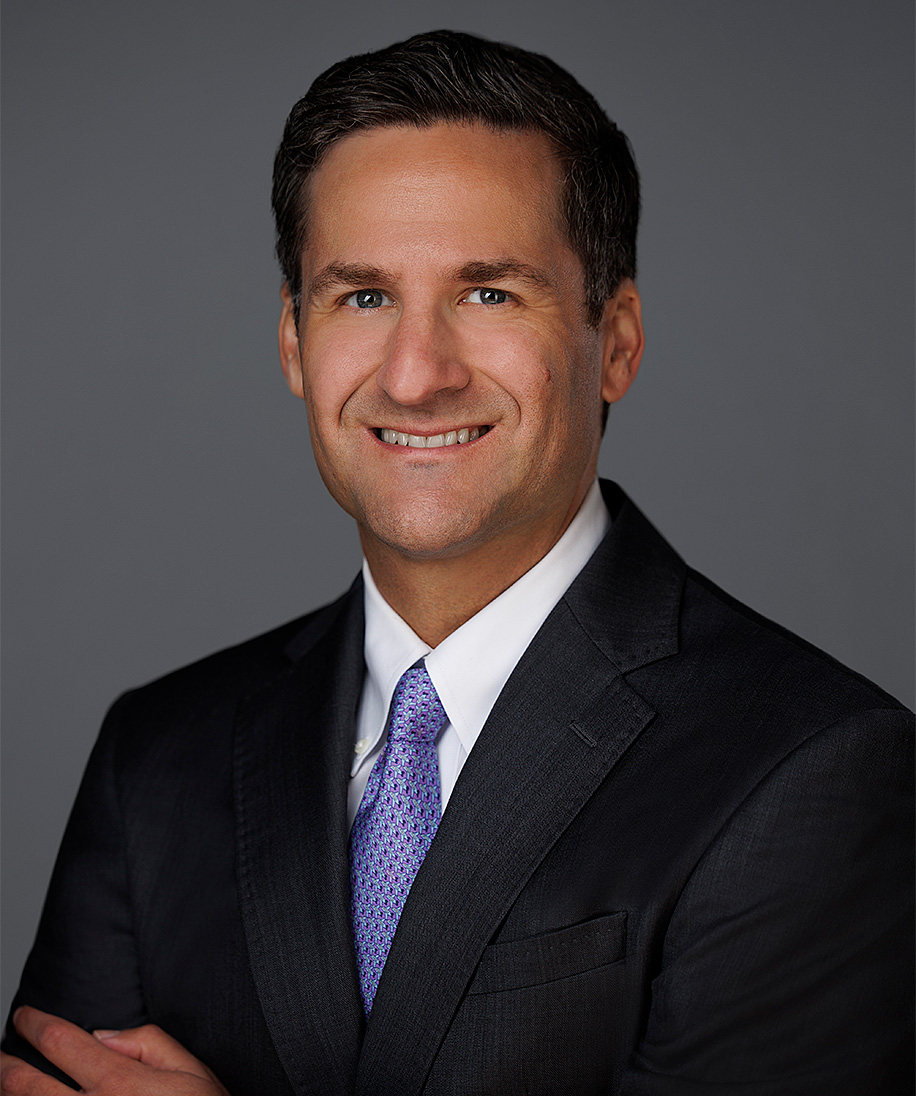Crypto Policy Tracker
Dramatic Shifts Point to Foundation for a Comprehensive Digital Asset Framework in the US
April 18, 2025
By Lisa Rubin, Derek Turnbull, Dina Ellis Rochkind, Jason Shafer, Samantha Ackel, Chris Daniel, Eric Sibbitt, Dana V. Syracuse, Josh Boehm and Meagan Griffin
In just a few weeks, the landscape for crypto policy has continued to shift dramatically. The president signed into law the repeal of an IRS rule that would have expanded the definition of “broker” to capture DeFi protocols; the U.S. House advanced three digital asset bills; and Senate banking committee nomination hearings and votes progressed for key financial regulatory posts across the SEC, OCC, Treasury and Federal Reserve.
Furthermore, the SEC hosted a roundtable on crypto trading, with calls for a unified framework to govern the trading of securities and non-securities, and to resolve overlapping jurisdiction with the CFTC. The SEC staff also issued new guidance confirming that most fiat-backed stablecoins are not securities and clarifying disclosure obligations for crypto-related offerings and registrations.
Meanwhile, the DOJ disbanded its crypto enforcement team and narrowed its focus to serious criminal misuse of digital assets, such as fraud, terrorism and organized crime. The FDIC signaled a more open approach to blockchain-related banking activities, and the CFTC withdrew longstanding staff advisories to streamline oversight of digital asset derivatives.
After years of uncertainty, agencies and lawmakers appear to be laying the foundation for a comprehensive digital asset framework. Washington is beginning to rethink the U.S.’s approach to ensure digital assets are integrated into the financial system: scaling back enforcement, opening the door to experimentation and inching toward modern regulation.
Legislative Updates
President Donald Trump Signs DeFi Broker Rule Repeal Resolution Into Law
- On April 10, the president signed into law H.J. Res. 25, a Congressional Review Act resolution discussed in last week’s tracker, to repeal the Internal Revenue Service rule relating to “Gross Proceeds Reporting by Brokers That Regularly Provide Services Effectuating Digital Asset Sales.” As a result, the rule is nullified, and no substantially similar rule may be issued in the future.
- Additional details on the rule are here.
House Financial Services Committee Advances Three Digital Asset Bills
- On April 2, the House Financial Services Committee held a markup and advanced five bills to the full House for consideration, three of which address digital assets.
- STABLE Act. The “Stablecoin Transparency and Accountability for a Better Ledger Economy (STABLE) Act of 2025” (H.R. 2392), passed on a bipartisan basis with a vote of 32-17. The bill would establish a federal regulatory framework for issuing stablecoins in the United States. Originally introduced as a discussion draft in February, the bill has undergone revisions following input from members and stakeholders, including during separate hearings in both the Digital Assets, Financial Technology and Artificial Intelligence Subcommittee and the full Financial Services Committee. Key amendments debated during markup focused on consumer protection, illicit finance prevention and separating banking and commerce.
- Financial Technology Protection. The “Financial Technology Protection Act of 2025” (H.R. 2384), passed unanimously by a vote of 49-0. The legislation, sponsored by Rep. Zach Nunn (R-IA), would establish an independent financial technology working group of senior government officials and industry experts to develop strategies for combating terrorism and illicit finance involving emerging technologies.
- CBDCs. The “Anti-CBDC Surveillance State Act” (H.R. 1919) passed by a vote of 27-22. The bill, sponsored by House Majority Whip Tom Emmer (R-MN), would prohibit the Federal Reserve from developing or issuing a central bank digital currency, reflecting concerns over potential surveillance and privacy implications.
Recently Introduced Digital Asset Legislation
- FLARE Act. On March 31, Sen. Ted Cruz (R-TX) introduced the FLARE Act, which would allow companies to deduct the cost of equipment used in flare gas mitigation systems, including systems that power Bitcoin mining. The bill aims to incentivize the productive use of stranded energy resources and promote innovation in digital asset mining.
- Financial Freedom Act of 2025. On April 1, Rep. Byron Donalds (R-FL) and Sen. Tommy Tuberville (R-AL) introduced the “Financial Freedom Act of 2025” (H.R. 2544 / S. 1222), which would prohibit the Department of Labor from restricting the range of investment options available in self-directed retirement plans, such as 401(k)s. The legislation is a direct response to 2022 guidance (Release No. 2022-01), cautioning against cryptocurrency exposure in retirement portfolios.
- Prohibiting Foreign Adversary Interference in Cryptocurrency Markets Act. Also on April 1, Tuberville introduced the “Prohibiting Foreign Adversary Interference in Cryptocurrency Markets Act” (S.1223), which would bar the CFTC from registering any digital asset commodity platform that is owned, in whole or in part, by a foreign adversarial nation.
- Curtail Weaponization of Banking Agencies. On April 8, Rep. Andy Barr (R-KY) introduced a bill (H.R. 2702) that seeks to address the perceived politicization of federal banking supervision by eliminating reputational risk as a consideration in evaluating the safety and soundness of depository institutions.
Congressional Hearings on Digital Asset Innovation
- House Hearing on Combatting Fraud. On April 1, the House Financial Services Subcommittee on National Security, Illicit Finance and International Financial Institutions held a hearing entitled “Following the Money: Tools and Techniques to Combat Fraud.” The discussion focused on strategies to combat financial fraud. Key proposals included expanding blockchain analytics tools for state and local law enforcement, increasing public education on scams and promoting stronger information-sharing between the public and private sectors.
- Securities Law Modernization for Digital Assets. On April 9, the House Financial Services Subcommittee on Digital Assets, Financial Technology and Artificial Intelligence held its first market structure hearing of the 119th Congress entitled “American Innovation and the Future of Digital Assets Aligning the U.S. Securities Laws for the Digital Age.”
- The hearing explored which digital asset activities fall under U.S. securities laws, where current regulatory gaps exist and what potential legislative reforms look like.
- Some members emphasized the need to modernize securities laws to accommodate digital asset innovation. Members previewed work on updated market structure legislation, building on FIT21, and criticized the former SEC chair’s lack of regulatory clarity.
- Other members warned that the committee’s legislative efforts risk weakening consumer and investor protections.
- Testimony reflected divergent perspectives on how digital assets should be regulated, with some supporting tailored frameworks and others warning against undercutting existing investor protection standards.
- House Agriculture Committee on Blockchain Innovation. On April 9, the House Agriculture Subcommittee on Commodity Markets, Digital Assets and Rural Development held a hearing entitled “American Innovation and the Future of Digital Assets: On-Chain Tools for an Off-Chain World.”
- The hearing examined how blockchain can improve market transparency, reduce settlement risk and bolster U.S. leadership in financial infrastructure.
- The chairman noted that the timing of the hearing was coordinated with the Financial Services Committee and signaled joint efforts on digital asset legislation.
- Republican and Democrats on the committee supported clarifying the SEC’s and CFTC’s roles, highlighting the importance of a unified framework to foster innovation while ensuring consumer protection, particularly in rural communities.
Nomination Hearings
- SEC Chair. Paul Atkins was confirmed by the Senate to serve as the next chair of the Securities and Exchange Commission on April 9. The next step is for Atkins to be officially sworn into office, which is typically routine. Once sworn in, Atkins will assume his duties as SEC chair. Atkins, a former SEC commissioner from 2002 to 2008, was nominated by President Trump to succeed Gary Gensler.
- OCC Chair. Jonathan Gould’s nomination to serve as chair of the OCC is currently pending before the full U.S. Senate. The Senate banking committee approved his nomination on April 3. He previously served as the senior deputy comptroller and chief counsel of the OCC, where he oversaw legal and licensing activities, including the chartering of the first fintech and crypto banks.
- Assistant Secretary of the Treasury. Luke Pettit has been nominated to serve as assistant secretary for financial institutions at the Department of the Treasury. On April 3, the Senate banking committee reported Pettit’s nomination. Pettit’s nomination is now pending before the full Senate. Pettit has served as a senior policy advisor to Sen. Bill Hagerty (R-TN), worked as an economist for the Senate banking committee and held positions at the Federal Reserve’s Division of Monetary Affairs and Bridgewater Associates.
- Federal Reserve Vice Chair for Supervision. Michelle Bowman was nominated to succeed Michael Barr as vice chair for supervision at the Federal Reserve. Bowman testified before the Senate banking committee on April 10. Following the hearing, the committee still has to approve the nomination, which then goes to the full Senate for a final vote. Bowman has served as a member of the Federal Reserve Board of Governors since 2018 and was formerly the Kansas state bank commissioner.
Agency Updates
SEC Crypto Task Force Roundtable on Crypto Trading
- On April 11, the SEC’s Crypto Task Force hosted a roundtable entitled, “Between a Block and a Hard Place: Tailoring Regulation for Crypto Trading.”
- SEC Opening Remarks. Acting Chair Mark Uyeda acknowledged that federal securities laws may present challenges for broker-dealers and national securities exchanges seeking to trade in tokenized securities. Current rules may not accommodate crypto-specific models, such as decentralized or 24/7 settlement mechanisms. Under an accommodating federal regulatory framework, some participants would prefer to offer both tokenized securities and non-security crypto assets under the same framework. Commissioner Hester Peirce encouraged the use of exemptive relief and limited market testing to explore how securities and non-securities could trade under a unified structure. Commissioner Caroline Crenshaw warned of risks where crypto platforms perform brokerage, exchange, custody and clearing functions without appropriate safeguards.
- Broker-Dealer Framework Reform. Many panelists supported modernizing the special purpose broker-dealer (SPBD) regime to enable side-by-side trading of tokenized securities and crypto commodities. The existing SPBD framework, introduced in 2020, requires firms to limit activity to digital asset securities, rendering it impractical. Commissioner Peirce has since called for public input on whether the SEC should revise or withdraw the SPBD statement. Panelists emphasized the need for a unified federal framework allowing broker-dealers and Alternative Trading Systems to handle both securities and non-securities digital assets, with appropriate oversight.
- Fragmented Oversight and Jurisdiction. Participants highlighted uncertainty over whether the SEC, CFTC or both should regulate trading venues handling multiple asset types. Some called for agency collaboration or even a merger; others noted that global crypto markets require U.S. regulators to coordinate internationally. Several urged the SEC to act now, rather than wait for Congress to resolve jurisdictional divides.
- Divergent Views on Regulation. Panelists ranged from decentralized protocol advocates, emphasizing that traditional protections may not apply to peer-to-peer trading where there is no intermediary, to others asserting that traditional regulatory protections would attract more institutional investors. Many noted the need to rethink how existing regulatory categories, such as broker, exchange and custodian, apply when one platform performs all functions, and whether disclosures could cure certain conflicts of interest.
- Capital Formation and Global Competitiveness. Panelists highlighted that over 85% of crypto trading occurs offshore and warned the U.S. risks losing market leadership. They advocated for regulatory sandboxes, interoperability and reciprocal frameworks to help American firms innovate and compete globally, while preserving the investor protections that underpin trust in U.S. capital markets.
SEC Staff’s New Guidance on Crypto Offerings and Registrations
- On April 10, the SEC staff of the Division of Corporation Finance issued a statement entitled “Offerings and Registrations of Securities in the Crypto Asset Markets” regarding the application of certain disclosure requirements under the federal securities laws to offerings and registrations of securities in the crypto asset markets, including those that relate to crypto assets offered as part of an investment contract. The requirements include:
- Description of Business. Describe the issuer’s business activities, such as developing a network and/or crypto asset, and the current stage of development. Include revenue generating activities, roadmaps, governance and the way the crypto asset functions in the network.
- Risk Factors. Disclose risks specific to crypto, including price volatility, regulatory exposure and reliance on third-party networks.
- Description of Securities. Outline the characteristics of the crypto asset, including voting rights, staking, dividends, transfer restrictions and token supply. Disclose whether underlying code can be modified, how, when and by whom, and what effect that may have on the rights of a holder of the security or subject crypto asset.
- Management and Governance. Identify those making key decisions, including directors, executive officers, developers or third parties.
- Financial Statements and Exhibits. Financial statements may be required, with specific requirements depending on the offering type. To the extent that the rights, preferences and obligations of holders of the securities are memorialized in smart contracts or otherwise programmed into the code of a network or application, the SEC has observed filings include the code of the smart contracts as an exhibit.
SEC Clarifies Most Fiat-Backed Stablecoins Are Not Securities
- On April 4, the SEC staff of the Division of Corporation Finance issued a “Statement on Stablecoins,” clarifying that certain fiat-backed stablecoins, referred to as “Covered Stablecoins,” do not involve the offer and sale of securities.
- The statement applies to a broad category of stablecoins that are widely used today. These Covered Stablecoins are designed to maintain a stable value relative to the U.S. dollar, offer one-to-one redemption rights and are fully backed by low-risk, liquid reserve assets.
- Applying both the Reves and Howey tests, the SEC concluded that purchasers of these stablecoins do not expect to profit from their acquisition. Rather, their primary motivation is to use the tokens as digital equivalents of U.S. dollars for payments or transactions.
- In Footnote 4, the SEC emphasized that it was not expressing a view towards “yield-bearing stablecoins,” which are stablecoins providing holders with yield, interest or other passive income, whether in the form of regular payments or rewards, or in the form of “re-basing,” which is a mechanism that automatically adjusts the total supply of the stablecoins.
NY State AG Letitia James Sends Letter to Congress
- On April 10, New York State Attorney General Letitia James sent a letter to congressional leaders urging them to pass federal legislation to strengthen regulations on cryptocurrencies and digital assets. AG James stated that the U.S. should require stablecoins to be backed on a one-to-one basis by the U.S. dollar and issued by American companies regulated under U.S. laws and subject to federal and state oversight. Further, she highlighted that stronger federal regulations on stablecoins will protect financial markets, investors and the U.S. economy.
Department of Justice Scaling Back and Shifting Cryptocurrency Enforcement
- On April 7, the Department of Justice issued a memorandum entitled “Ending Regulation By Prosecution,” announcing a major shift in its approach to digital asset enforcement. The DOJ will “no longer target virtual currency exchanges, mixing and tumbling services, and offline wallets for the acts of their end users or unwitting violations of regulations[.]” Instead, enforcement efforts will focus on cases involving investor fraud or the use of digital assets in terrorism, narcotics trafficking, organized crime, hacking, and gang or cartel financing.
- As part of the shift, the DOJ disbanded its National Cryptocurrency Enforcement Team (NCET). The Market Integrity and Major Frauds (MIMF) Unit has been directed to cease crypto-related work and reallocate resources to other areas, such as immigration and procurement fraud.
- Prosecutors are discouraged from pursuing regulatory violations, such as unlicensed money transmission or registration failures, absent evidence that the conduct was knowing and willful. They are also instructed to avoid bringing cases that hinge on classifying a digital asset as a “security” or “commodity” where another charge is available.
- While regulatory compliance remains important, institutional crypto firms may face a reduced risk of federal criminal prosecution under this new policy. The rollback may also affect pending cases, increasing the likelihood of dismissals or more favorable settlements for defendants.
FDIC Signals More Open Approach to Crypto Activities by Banks
- On March 28, the FDIC issued Financial Institution Letter (FIL)-7-2025, removing barriers such as a prior notification requirement that effectively prevented FDIC-supervised banks from engaging in crypto- and blockchain-related activities.
- On April 8, during a speech at the American Bankers Association’s Washington Summit, FDIC Acting Chair Travis Hill previewed his agenda “to establish a consistent, transparent approach to oversight of banks that provide crypto- and blockchain-related products and services, while ensuring appropriate guardrails are in place, consistent with safety and soundness standards.”
- Hill’s agenda includes clarifying the scope of permissible crypto-related activities for banks beyond those activities currently deemed permissible for national banks by the OCC. One specific activity Hill highlighted was banks’ use of public, permissionless blockchains, noting that other jurisdictions currently permit this activity.
- In addition, Hill noted that the FDIC is monitoring efforts to pass federal legislation related to payment stablecoins and thinking through the types of issues that may require clarification if such legislation is passed, such as liquidity risk management, illicit finance, cybersecurity and the application of pass-through deposit insurance regulations to clarify the eligibility requirements for deposits that serve as stablecoin reserves.
- Hill said the FDIC should provide certainty that tokenized deposits are “deposits” (presumably under the Federal Deposit Insurance Act) and, to facilitate the orderly resolution of a failed bank, take appropriate actions to ensure that the capabilities exist to stop the flow of funds via blockchains at the time of a bank’s failure.
CFTC Staff Withdraws Digital Asset Advisory Letters
- On March 28, the CFTC issued two staff letters withdrawing earlier digital asset-related advisories, signaling a regulatory shift.
- CFTC Letter No. 25-07 withdrew Advisory No. 18-14, which had imposed enhanced requirements for listing virtual currency derivatives on futures exchanges and swap execution facilities, such as heightened market surveillance, information-sharing with spot markets, strict margin requirements and stakeholder engagement.
- CFTC Letter No. 25-08 withdrew Advisory No. 23-07, which had outlined supervisory expectations for clearinghouses handling digital asset contracts, including requirements around cybersecurity, conflicts of interest and physical settlement risks.
- The CFTC stated that these advisories were no longer necessary due to increased market maturity and experience, and emphasized that digital asset derivatives will now be supervised under the same standards as other commodities.
Contributors









Practice Areas
For More Information








